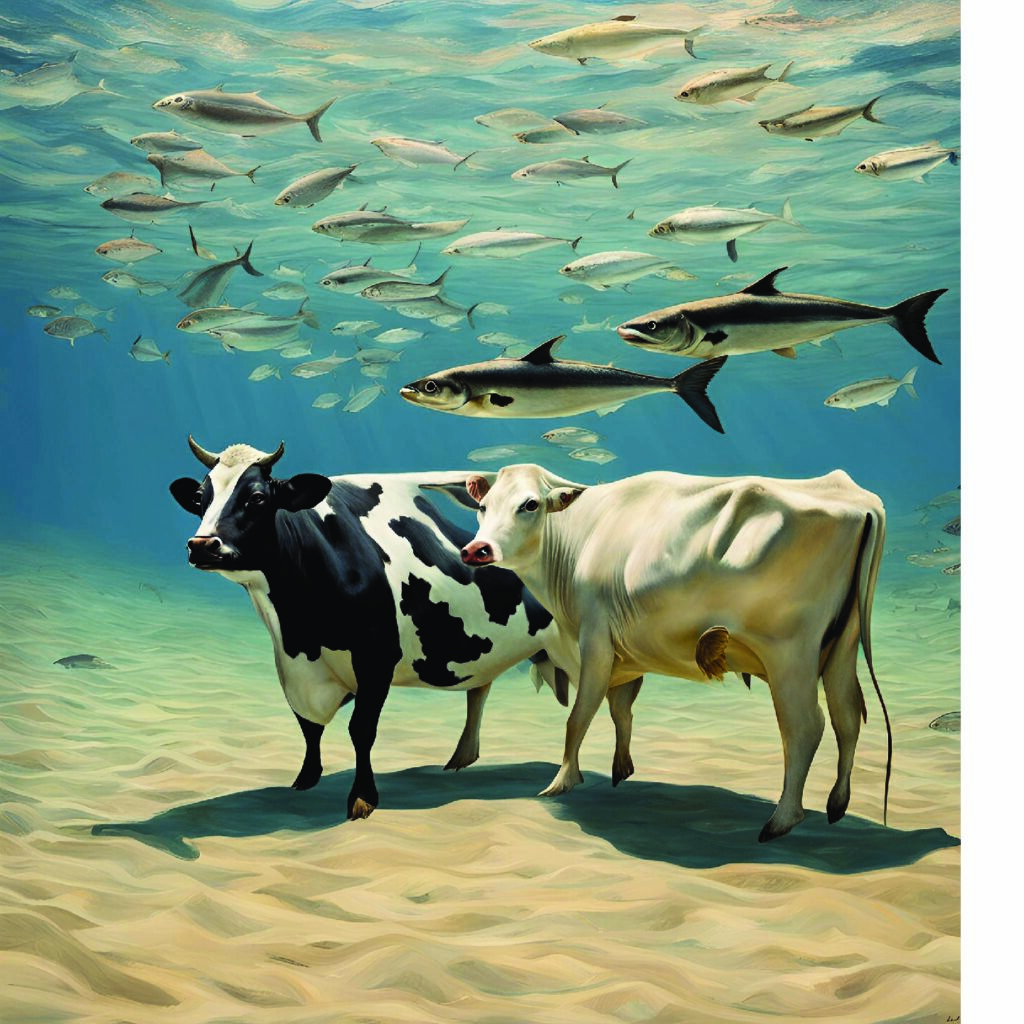Many of us have used or heard the phrase “Holy Mackerel” when expressing surprise, excitement, wonder or disbelief. But why that fish and not “Holy Salmon” or “Holy Tuna”? According to researchers, the phrase, which was first documented in 1803, has an uncertain origin. Some say it had to with Catholics eating fish on Fridays or that it is a substitution for “Holy Mary.” Another explanation is that the practice of selling mackerel on Sundays in the 17th century led to mackerel becoming known as a “holy” fish. Holy Mackerel!
Mackerel (Scombridae) is from the family of pelagic (open-sea) fishes of class Actinopterygii, which includes tunas, albacores, skipjacks, bonitos and ceras. (The Canadian Encyclopedia)
And what about “Holy Cow”? Interestingly, there’s a connection between that phrase and major league baseball. “Holy Coq” is used as expression of surprise and it dates back to at least 1905 when a letter to the editor of Minneapolis Journal contained the words “Holy Cow.” As early as at least 1913, “Holy Cow” was used by several US baseball broadcasters, including Minneapolis reporter and broadcaster Halsey Hall. Also using the phrase was New Orleans radio announcer Jack Holiday in 1930s broadcast of minor-league baseball; Harry Caray broadcasting for four major league baseball teams; New York shortstop Phil Rizzuto often used “Holy Cow”; and, so did Milwaukee Braves broadcaster Earl Gillespie.
Other “holy” sayings include “Holy Moly” (expression of surprise) and “Holy Smokes” (from the black or white fire smoke to signify voting for new pope).
Ever wonder who ‘Pete’ is in the phrase “For Pete’s Sake?” Apparently it originated in the use of the name of discipline St. Peter as a substitute religious figure to make less offensive “for Christ’s (or God’s) sake.” Also, “For Crying Out Loud” is said to originate from that same expression “For Christ’s Sake” but there’s no reasonable explanation why.
On a lighter note, credit for the origin of the “Good Grief” saying goes to the Charlie Brown cartoon and TV episodes. First spoken in print by Charlie Brown in a Peanuts comic strip published on June 6, 1952, it’s an exclamation used when surprised, alarmed, dismayed, annoyed, shocked or exasperated in response to unexpected event or situation.
Back 217 years ago in 1807, journalist William Cobbett wrote a fictional article about misleading clues using figurative “red herring” for comparing media’s premature reporting of Napoleon’s defeat to the historic use of smelly fish (e.g. smoked red herring) to distract dogs to lose their scent while chasing rabbits. The “red herring” phrase today applies to a diversion, something that misleads, distracting attention from the main issue.
Ever use the word “copacetic”, like in “Everything is copacetic”? First known use was in 1919 and became a popular word in the 1960s as a way to say that “it’s all good.” Merriam-Webster dictionary defines it as “meaning something is very satisfactory.”
And hey, remember those cool “Sock Hops”? Back in my senior years attending Lakeview High School, one of the best memories was attending the lunch-hour “sock hops” where you danced on school’s gymnasium floor. Music was rock-n-roll and we’d jive, twist or do something akin to a jitterbug. It was part of the teen culture of the 1950s and 1960s in both US and Canada. The name ‘sock hop’ came from teens having to remove their shoes and dance in their socks, though I confess I really can’t remember taking off my shoes.
Ah yes – the romance of “Going Steady.” It’s a phrase that hasn’t been used since the 1970s, but it was a big part of the teen culture in the 1960s. Going steady meant you dated one person in an exclusive relationship. News would travel quickly among the teens, “Did you hear that John and Jane are going steady?!” Songs at the time also dealt with the ‘breaking up’ side of going steady, like Neil Sedaka’s “Breaking Up is Hard to Do”, first recorded in 1962.
Some quirky sayings of the past include “Whale of a Tale” which was used to refer to something on a grand scale, like “Got a whale of a tale to tell you.” The origin is credited to a song featured in the 1954 Disney movie, “20,000 Leagues Under the Sea” sung by the late actor Kirk Douglas.
Eh? Unique to Canadians is the common use of two letters ‘eh’. By tagging it to the end of sentences, it can turn statements into questions, e.g. “Sure was cold today, eh?” or seek agreements, e.g. “You agree, eh?” In a CBC News article “Origins of eh: How two little letters came to define Canada” (May 17, 2017), journalist Paul Karchut wrote, ”Eh has become such a natural part of our speech that many don’t even realize they’re using it in day-to-day conversation.” Earliest use of eh goes back to an Irish play of 1773 and the first documented eh can be found in Thomas Chandler Haliburton’s book, “The Clockmaker”, written in 1836.
Words can be pretty fascinating, eh?

